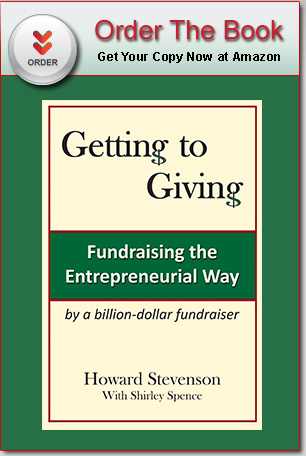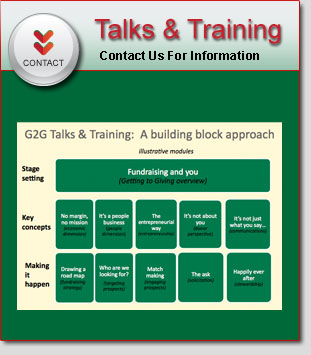Here are six ways that one donor and fundraiser (yes, Howard) thinks about wealth and the implications for getting to giving.
-
Wealth is an instrument of choice. People who are wealthy have lots of opportunities to give. Just because they’re rich doesn’t mean that they will give to you. How can you differentiate yourself from other causes, especially similar ones?
-
Good choices require good goals. You have to find people who care about the work you do. To do that, you have to understand their goals, generally and philanthropically, and determine whether there is a good match.
-
Wealth is a responsibility. Many rich people earned their money the hard way; they’ll want to be sure it’s not wasted. Can you demonstrate that you are well managed, and will be around for a while? Can you tell a donor how her gift is being used, and the impact it is having?
-
Enough is enough. Timing is everything. Here’s a way to think about what you can expect to get and when, based on my quantum view of wealth:

-
Things will change. People’s interests and circumstances change. Don’t assume that a devoted supporter will be around forever. The parents of a student may lose interest in your school once their child has moved on, for example.
-
Failing to plan is planning to fail. Where does philanthropy fit into your economic model and business plan? What prospects do you want to cultivate? How will you steward your donors?
And a final reminder: You don’t have to be wealthy to give. Time, talent and networks can be just as important as treasure.



